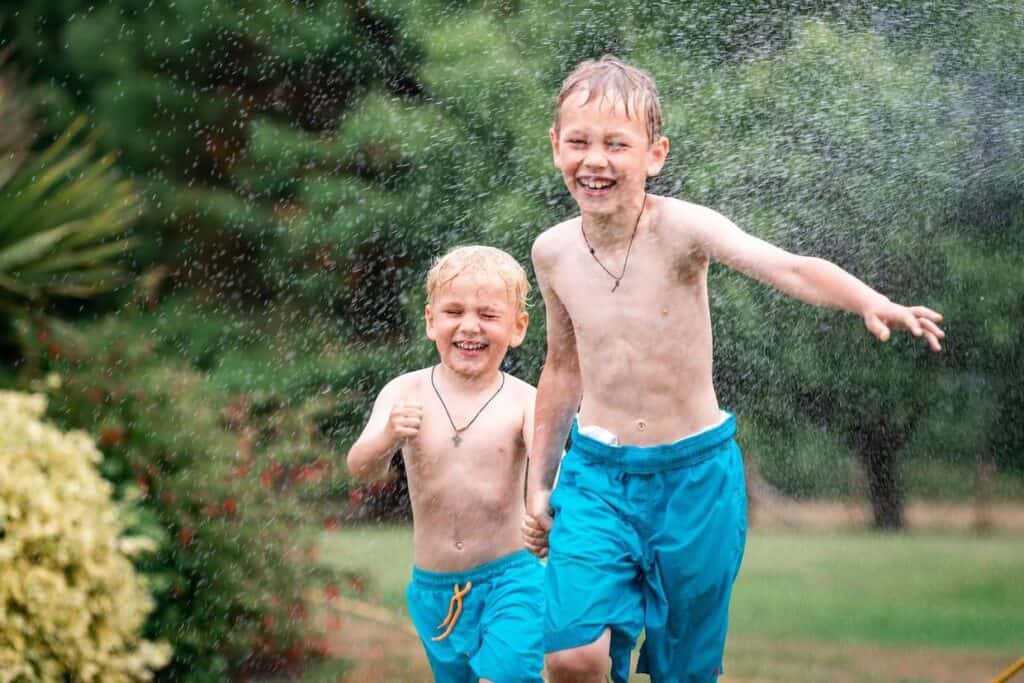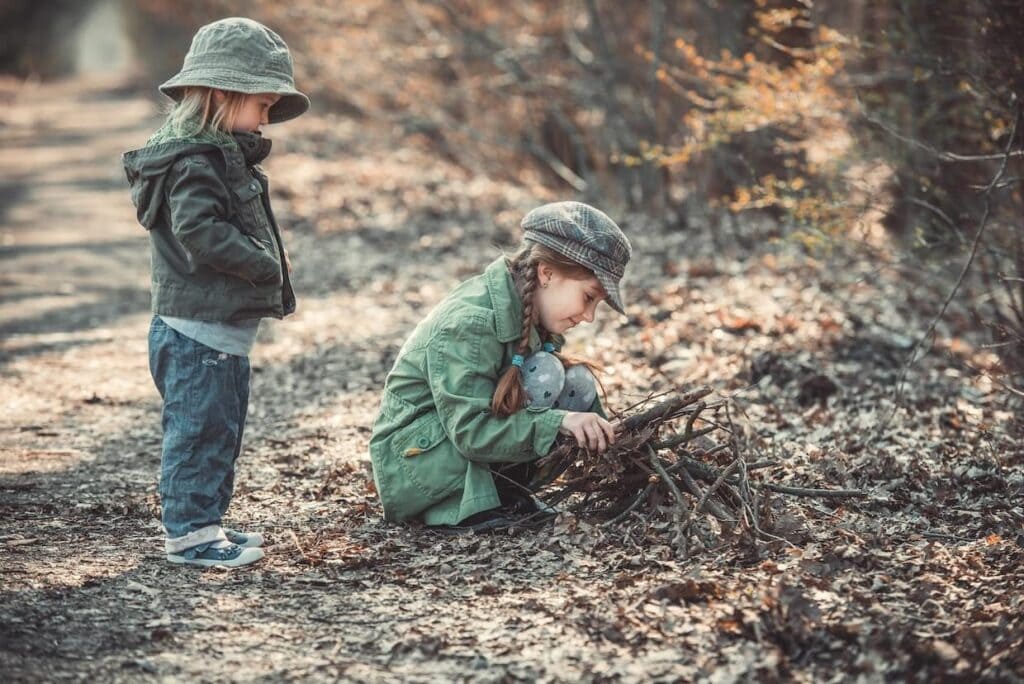In the era of screens and structured activities, it’s easy to forget the simple joys and benefits of outdoor play for kids. Yet, letting kids explore, create and discover in nature is essential for their development and well-being. So why is unstructured outdoor play so important? And how can you encourage it in a tech-driven world?

The lost art of play
Back in the day, before smartphones and streaming services, kids spent endless hours outside, letting their imaginations run wild. They built sandcastles, climbed trees and played tag until the streetlights came on. But in recent years, the landscape of childhood has shifted. With increasing pressure on academic performance and fears of safety, many kids have fewer opportunities for unsupervised time outdoors.
The benefits of outdoor play
Unstructured outdoor play isn’t just about having fun; it’s about nurturing essential skills and qualities in kids. Research in the Porto Biomedical Journal has shown that time spent in nature is essential for children’s healthy development. It can improve cognitive function, boost creativity and reduce stress. When kids are left to themselves outdoors, they learn problem-solving skills, develop physical coordination and build resilience. Playing outdoors helps with:
- Boosting immunity and physical health. Spending time in fresh air is a natural way to strengthen immunity. Outdoor play promotes physical activity, including running, jumping, climbing and biking. Regular physical activity is key to maintaining a healthy weight.
- Cultivating creativity and imagination. When children engage in unstructured outdoor play, they become the architects of their own adventures. A stick becomes a magic wand, a pile of rocks transforms into a castle and a patch of grass becomes a jungle. Without the constraints of rules or guidelines, kids can let their imaginations soar, creating elaborate worlds and stories of their own making.
- Developing social skills. Playing outside provides invaluable opportunities for kids to interact with their peers. Whether they’re collaborating on a makeshift fort or negotiating the rules of a game, kids learn important social skills such as communication, cooperation and conflict resolution.
- Connecting with nature. In today’s tech-centric world, many children are more familiar with virtual landscapes than the great outdoors. But spending time in nature is essential for fostering a sense of wonder and appreciation for the world around us. Whether it’s splashing in puddles, collecting leaves or watching birds soar overhead, outdoor play allows kids to connect with the natural world in meaningful ways.

Tips for encouraging outdoor play
So, how can parents foster a love of unstructured outdoor play in their kids? Here are a few tips to get started.
Set aside dedicated outdoor time
Make outdoor play a regular part of your child’s routine by setting aside dedicated time each day for outdoor exploration and play. Consider scheduling outdoor activities such as nature walks, scavenger hunts or even simply free play in the backyard to ensure that outdoor time becomes a consistent and cherished part of their day.
Create a nature-friendly environment
Transform your backyard or local park into a haven for outdoor play by providing simple materials like sticks, rocks and buckets for imaginative play. Additionally, consider planting child-friendly gardens or creating a space for messy activities like mud kitchens or sandboxes to further enhance the outdoor experience and stimulate your child’s imagination.
“Even with only having a small backyard, my kids’ outdoor play thrives. Limited space hasn’t stifled their creativity; it’s amplified it. They transform everyday items into playthings by using their surroundings imaginatively. Supporting their outdoor adventures, I’ve seen firsthand how outside play enhances their problem-solving skills, physical development and imagination.”
— Sara Nelson, Real Balanced
Be a role model
Lead by example and show your children the joy of spending time outdoors. Whether it’s gardening, hiking, enjoying a picnic in the park or heading to the beach with a bag full of beach toys, let your love of nature shine through by actively participating in outdoor activities with your kids. Your enthusiasm and engagement will inspire them to embrace the outdoors and develop a lifelong appreciation for nature.
“As a mom of three, outdoor play is a staple in our routine. Not only does the fresh air tucker them out, but it’s the best place for them to explore. Though we do structured activities like parks and playgrounds, our best memories are of hikes in the forest, skipping rocks in rivers and generally exploring wherever we end up that day. It gives kids a mental boost and gets out their sillies at the same time.”
— Shelby, Fit As A Mama Bear

Embrace messiness
Outdoor play can get messy, and that’s okay. Encourage your children to get dirty, explore and experience the natural world in all its messy glory. Provide opportunities for sensory-rich experiences such as playing in mud puddles, digging in the dirt or rolling down grassy hills, allowing them to fully engage their senses and connect with the world around them.
One last thing
In a world filled with screens and schedules, unstructured outdoor play is more important than ever. By giving your kids the freedom to be outdoors, you’re nurturing essential skills and qualities that will serve them well throughout their lives. From building forts to chasing butterflies, unstructured outdoor play offers a plethora of opportunities for growth and enjoyment. So, embrace the magic of outdoor play and watch your kids thrive.
Tamara Tsaturyan is the owner of Thriving In Parenting, a blog that shares simple tips for busy parents — easy and healthy recipes, home decor and organization ideas and all things parenting.